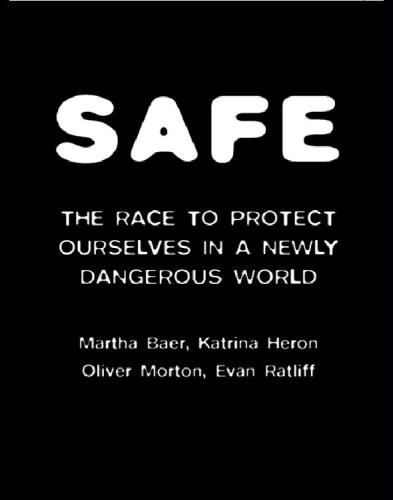
Safe
کتاب های مرتبط
- اطلاعات
- نقد و بررسی
- دیدگاه کاربران
نقد و بررسی

January 31, 2005
Despite its title, this work is less a warning about how precarious our safety is in the face of 21st-century terror attacks-although it has a lot to say about this-than it is a sophisticated, intelligently written exploration of the systems that make up our world (such as buildings and cities, ports, molecular and cell biology, the Internet and digital media). These systems, their uses and the major government, industry and academic players that have a hand in them are treated in each chapter. In so doing, the authors not only present a straightforward introduction to these highly complex systems, but also a fascinating history of their growth and development up to and since the attacks on the World Trade Center and the Pentagon. And because many of these systems have been around since the Cold War era, the book presents September 11 less as an incomprehensible historical anomaly than as part of the continuum of attack and counterattack between the U.S. and its shifting constellation of enemies. Yet on an even more fundamental level, the book explores our responses to 9/11 (indeed, all human responses to historical and political conflicts) in terms of the more general human drive toward the shared tasks of adaptation, system building and survival. "The road to safety is not to simplify things. It is to try to arrange the world in such a way that its complexity keeps options open, offers alternatives, provides opportunities to adapt," the authors write. In the end, the volume's biological, species-wide perspective on the issues surrounding national security is its abiding strength and will keep it relevant long after 9/11 takes its place alongside Pearl Harbor, the Challenger explosion and the assassinations of Presidents Kennedy and Lincoln as remembered-rather than felt-national tragedies.

April 15, 2005
We rely on an incredible number of systems in our daily lives: transportation, sanitation, food, electricity, communications, and so on. The possibility of a terrorist event disrupting this delicate balance is something that many Americans worry about every day. Baer, a former producer for "Wired Digital", is joined by fellow journalists Katrina Heron, Oliver Morton, and Evan Ratliff in crafting a riveting account of the wide range of counterterrorist work that is going on every day in this country. From engineers considering the effects of bomb blasts on the integrity of buildings, to scientists studying the quiet yet horrible impact of germ warfare, to computer wizards struggling to crack sophisticated computer codes that hide the communications efforts of such nefarious groups as the hijackers who destroyed the Twin Towers on 9/11, this powerful story should be required reading for anyone who wonders how the war on terror is really being handled. Recommended for all collections. -Ed Goedeken, Iowa State Univ. Lib., Ames
Copyright 2005 Library Journal, LLC Used with permission.

February 1, 2005
This is not a book you should read if you're in a suspicious frame of mind. The authors explore an aspect of the aftermath of the September 11 terrorist attacks that hasn't been widely discussed. The world is full of new technology, affecting everything from home entertainment to commerce to communications to security, but do we understand fully the potential downside of such wondrous innovations? The authors argue that we can't ignore the fact that communications technology (for example) has made it much, much easier for terrorists to talk among themselves without fear of being overheard. New technologies, in other words, have the potential to be turned against us, and it's up to the men and women profiled in the book--scientists, inventors, government workers, and academics--to be aware of the dangers and to develop ways to guard against them. A fascinating study of how our future security is being protected behind-the-scenes by those who view technologies as complex systems with long-range implications for both good and ill.(Reprinted with permission of Booklist, copyright 2005, American Library Association.)

























دیدگاه کاربران